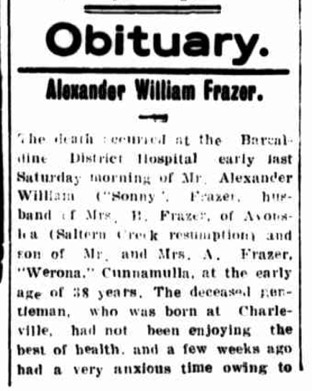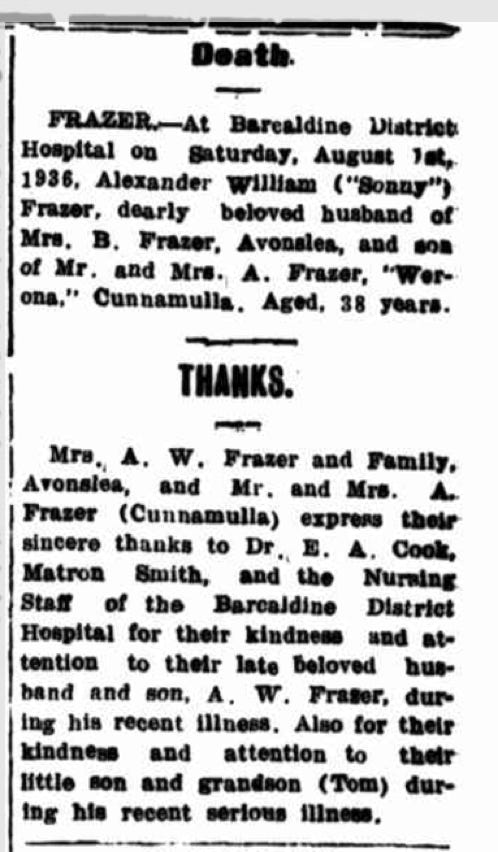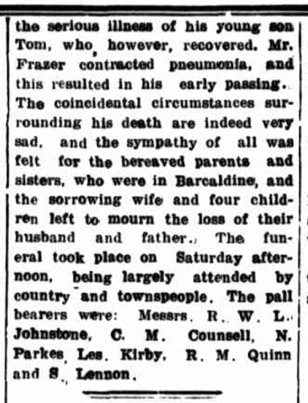‘Religion, Politics and the Great Pumpkin’
“There are three things I have learned never to discuss with people: Religion, Politics and the Great Pumpkin”
- Linus, in the comic strip Peanuts by Charles M. Schulz.
Taboo topics can create a substantial barrier to gathering family history from living sources. Even if the message of the taboo is unspoken most children are very intuitive. I learnt quickly that along with the subject of Religion, other topics that were often included in the list of “things not discussed in polite company” were: Death, Inheritances, Money, Physical and Mental Illness and Sexuality. I also noted that there were significant variations in what topics my close relatives were willing to discuss with me. I was quite young when I realised that an individual’s memories and stories of ‘how things were’ simply cannot encompass the complexity of family events.
Although I feel a strong sense of responsibility to retrieve and to preserve our family history for future generations, my focus has always been on research and facts rather than on discovering and revealing secrets. Every era and culture has it taboos, and everybody has secrets. I have no interest in recording the details of ‘family secrets’ in such a manner that they invade the privacy of others. However I wish to make it clear that I do not believe that a person’s birth circumstances or their sexual orientation should continue to remain taboo issues with the potential to engender shame. Similarly I believe that we must be free to discuss health conditions that may have been stigmatized or even taboo in the past. I passionately believe that there is a real need to be able to recognise psychological and emotional trauma, and to validate it. As my research journey has progressed, I have have intentionally viewed the unfolding individual and family narratives through the lens of a trauma informed approach:
…”Without effective intervention, there is compelling evidence of long-term adverse consequences of untreated trauma lasting into adulthood that include substance abuse, suicidality, serious mental illness, and long-term physical health factors associated with early death.” …”Trauma, however, does not affect everyone in the same way. Some people experience a terrible event but suffer no long-term adverse emotional effects, while the same event have a devastating impact on the individual standing next to them. Traumatic response is highly individualized and shaped by a wide range of factors, from genetics, to previous life experiences, to support systems available in the aftermath of the event. How helping professionals respond also influences the long-term impact of traumatic events for the better, when delivered in a trauma-informed environment, or for the worse, if delivered in a trauma-insensitive manner, as has been the case for much of history.” http://socialwork.oxfordre.com/view/10.1093/acrefore/9780199975839.001.0001/acrefore-9780199975839-e-1063
My father’s alcoholism wrought great havoc within my family, and it led to his early death. As a child I was very aware that nobody but my mother was prepared to speak in any detail of the circumstances of the death of my grandfather, Alexander William (“Sonny”) Frazer. …“The story is that when your father was thirteen he was seriously ill in Barcaldine Hospital with suspected meningitis. His father worked hard during the day and sat beside his bedside at the hospital at night. The day your father left the hospital his father was admitted, and he died within days.”
Similarly, my mother was the only person who was prepared to tell me what played out when, less than a year after the traumatic loss of his father, my father’s grandfather died. Life was tough, and people did what was seen as necessary for the family to survive. However as an adult, I have often wondered if anybody ever really talked to my father about his experience of his father’s death, or about his experience of the following year when he was removed from school at fourteen, separated from his mother and siblings, and sent to live with his newly widowed grand-mother and grieving maiden aunts to help them run the remote “Werona” property.




The Western Champion (Barcaldine, Qld. : 1922 - 1937) Sat 8 Aug 1936 Page 11 & 12 TROVE - National Library of Australia: http://bit.ly/2qeS4Mx
RESEARCH Part A.
- RESEARCH - Questions and Inspiration.
- RESEARCH - My curiosity & my many collections.
- RESEARCH - Religion, Politics and the Great Pumpkin
- RESEARCH - The Orange and The Green.
- RESEARCH - Why did they leave? Where did they go?
- RESEARCH - Acknowledgement of Traditional Owners.
- RESEARCH - Stewart and Doody - a puzzling pair.
- RESEARCH - Maps Charts and Trees.
- RESEARCH - Snippets from here and there, and a red herring Z.
- RESEARCH -The 1990 Frazer Reunion, and how we got our Z.
- RESEARCH - Searching for Ships.
- RESEARCH - It’s time to forget about it, or to ‘go it alone’.
- RESEARCH - What, no Glenfiddich or Tullamore Dew?
- RESEARCH - Questions remain: Why did they leave? Was Holt his name?
- RESEARCH TRIP 2016 - They struck out from Sydney.
- RESEARCH TRIP 2016 - He married a Marks.
- RESEARCH TRIP 2016 - They moved on again.
- RESEARCH TRIP 2016 - The Grant/Gorman family of Harden-Murrumburrah
- RESEARCH - Acknowledgement of Traditional Owners.
- RESEARCH TRIP 2016 - An 1874 Tall Ship - The James Craig
- RESEARCH - Could I be right? What do you think?
- RESEARCH TRIP 2017 - The Maritime Museum of Tasmania and the Lady Nelson
- RESEARCH TRIP 2017 - Hobart: A Monument, Land Grants, and Maps.
- RESEARCH TRIP 2017 - Hobart: St David’s Park
- RESEARCH TRIP 2017 - Hobart to York Plains, Home to the Holt and Peters families
- RESEARCH TRIP 2017 - Heading home with questions and a task or two.
- RESEARCH - Plan B - A public website.
- RESEARCH - Choose your own adventure

